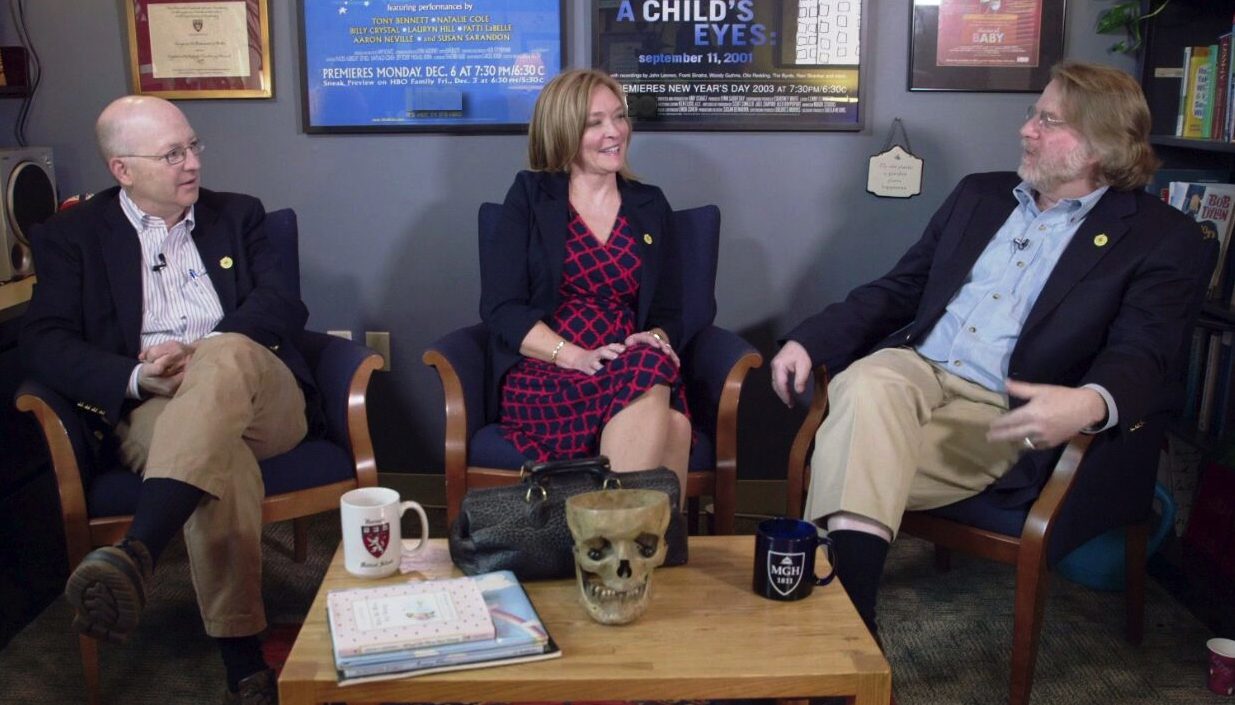Five Parenting Tips for Civility and Coping With the Political Climate

Posted in: Grade School, Hot Topics, Parenting Concerns, Teenagers, You & Your Family
Topics: Culture + Society
It’s not like we need all of the breaking news headlines to know that things right now are super-tense. I’ve lost count of how many times I’ve been approached with questions or concerns about how parents can keep their heads in these trying political times. And with every passing day, there is much more at stake.
But what’s happening now is something new. There’s just never been a time like this in modern American history.
No one is happy. Everyone, it seems, is mad. The gunpowder that keeps the emotional fuse lit is the near-constant media coverage of opposing views. You can agree or disagree with current leadership. You can approve of the current state of affairs or you can be frightened or disgusted by it. No matter what, people are just plain angry.
But by witnessing the constant screaming at each other, our children are being robbed of an actual childhood.
This doesn’t mean that we shouldn’t involve our young people in current debates. Few things are better for a teen brain than to practice careful, civil, and thoughtful disagreement. That’s how we train our kids to prepare for the real debates that they’ll have when they take over as future leaders, workers and parents.
What I find most alarming is how hard we all have to work to remain civil with each other during the new “normal” of incivility.
If it’s hard for me to stay civil with friends with whom I disagree, it must be really hard for kids to make sense of all of this chest-pounding that we adults seem unable to stop. Moreover, it must be even more difficult for kids who disagree with their peers, or their school administrations, or especially their parents. And, it must be absolute torture for kids who are trying to figure out what it is they believe, or, heaven forbid, to change their minds.
What a mess for our children. We’re not doing them any favors by modeling this kind of angry intolerance.
Some things are slam dunks. Brutality is bad. Sexual assault is bad. There’s not a lot of room for civility on topics like these. But that’s not the issue. Reasonable dissenters on both sides of whatever aisles we’ve created agree on the basics, and it’s how we go about addressing these basics that’s bothering me.
For the sake of our children and their future, we have got to do better. It’s time for us to behave like grownups.
Tips for Civility and Coping
As much as I wish we didn’t need it, I’d like to suggest some rules for civil ideological engagement. These rules apply whether we agree or disagree. These rules apply whether we think we’re on the same side or whether we’re trying to make what feels like a desperately important opposing point. These rules even apply if we’re trying to change our own minds.
These tips are based on neurobiology and child development (though, I feel like I shouldn’t have to justify them by saying that research supports them). We seem to have lost the fundamental ability to get along. That’s a terrible legacy for our kids to inherit.
- Tip #1 – Smart people can disagree. Just saying that sentence out loud helps. Smart people can disagree. And you have to say it out loud for it to work. Practice saying, “This is a subject about which really smart people often disagree.” Otherwise, we attribute the lack of agreement with lack of clear thinking, or worse, with lack of intelligence. That’s not fair to you or to the person with whom you’re disagreeing. It also changes the subject away from the topic you’re trying to discuss—not to mention the fact that calling someone stupid is juvenile and unproductive.
- Tip #2 – Put yourself in their shoes. If your kids find themselves in the midst of a disagreement, help them to try on the other guy’s shoes. Literally say to your child, “I wonder what’s it like to be in their shoes?” Make them slow down and imagine why the other person feels so strongly. Is it cultural or religious? Is it breaking from their parents? Is it a reluctance to agree with their parents? Is it based on tradition? This practice can help to make things less personal. This exercise promotes humility. If you can imagine what it’s like to be the other person, then you’re less likely to attack that person and more likely to argue the ideas that are being contested.
- Tip #3 – Don’t shout. This is especially important among teens in the midst of a disagreements. Don’t shout. When teens disagree, their brains run towards a fight. That instinct to fight, the basest instinct that our conscience brains permit, is much more likely in the under-developed adolescent brain. Shouting triggers the desire to fight, and once the fight begins, either through more shouting or even physical altercation, there’s no chance for civility of debate. There’s evidence that this is really bad for teen brains. Help your teen to practice staying calm, and note that they’ll need to stay calm especially when they feel most like blowing up. In other words, don’t do what all the adults in politics seem to be doing. Be better than those adults.
- Tip #4 – If you can’t agree, put it aside. If the argument is at a standstill, learn to put it aside. Contrary to what our leaders seem intent on modeling, it is possible to disagree and remain cordial or—gasp—to be actual friends. Look at George W Bush and Bill Clinton. Unfortunately, in this current climate, the benefits of befriending folks who disagree often gets entirely lost.
- Tip #5 – Get active in the community. Constant arguing is bad for lots of reasons, but perhaps most detrimental is the feeling kids get that they’re powerless to effect change. Help them to become active. If the view your teen holds is civil, get him or her in touch with developmentally appropriate political movements. This promotes affirmation. Otherwise, your child might think that their only recourse is to argue. That’s a developmental dead end.
Look. If our leaders won’t show us how to behave, then we have to show them. That includes showing our kids how to get along even when we don’t agree. It’s time for us all to act like adults. Otherwise, how in the world will our kids grow up?
Further Reading
- Children and teens worry about political issues (ScienceDaily)
- Wait, Yelling Hurts Kids? (NPR – Special Series, Parenting)
- George W. Bush and Bill Clinton’s Friendship Now Feels Shocking (Vanity Fair)
- The Righteous Mind (Jonathan Haidt)
- Democracy begins at home: Democratic parenting and adolescents’ support for democratic values (European Journal of Developmental Biology)
- Be it ever so humble: Proposing a dual-dimension account and measurement of humility (Self and Identity)
Was this post helpful?
Newsletter
Subscribe Today
Your monthly dose of the latest mental health tips and advice from the expert team at The Clay Center.
SubscribeMultimedia
Quick Jumps
Tag Cloud
-
addiction
ADHD
adolescents
anorexia
anxiety
autism
behavior
CBT
child development
children
college
communication
covid-19
depression
digital media
dyslexia
eating disorder
evaluation
family
fear
healthy development
learning
learning disabilities
learning disability
mental health
mental illness
parenting
parents
Podcast
PTSD
relationships
resilience
school
shrinking it down
social media
stigma
stress
suicide
technology
teenagers
teens
therapy
trauma
treatment
violence

 Share
Share Tweet
Tweet





